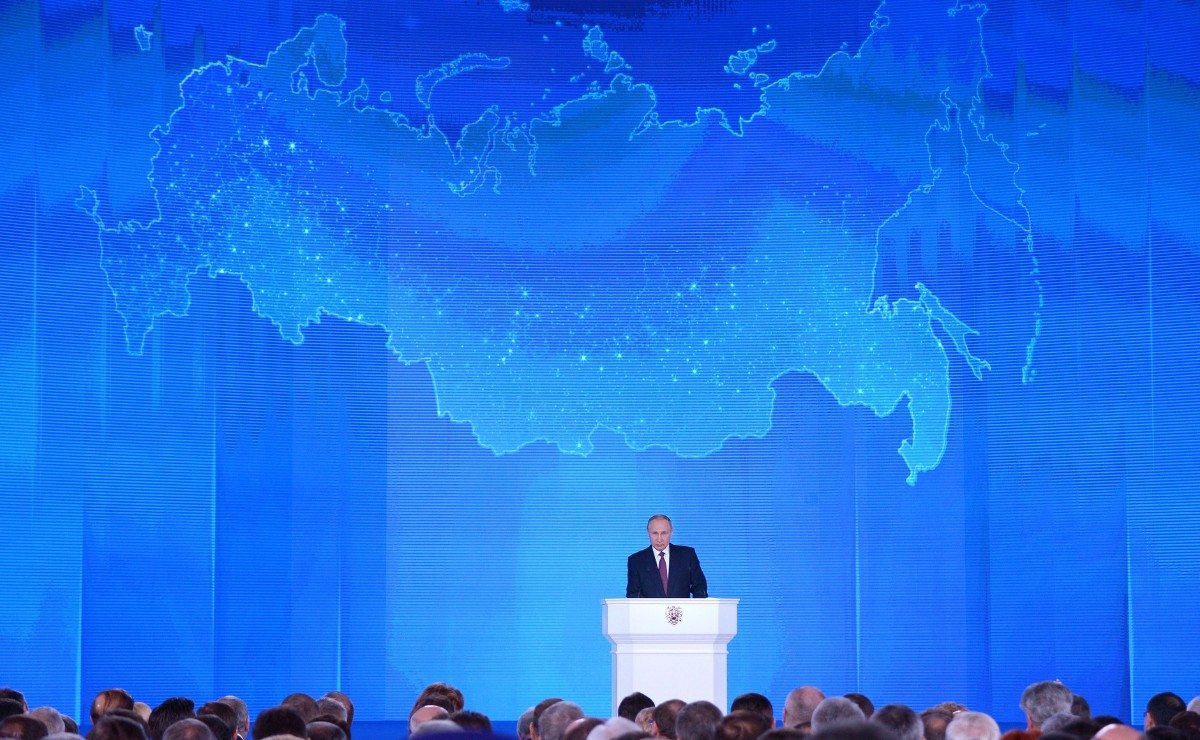 Photo courtesy of: Russian Presidential Executive Office
Photo courtesy of: Russian Presidential Executive Office
Putin’s State of the Nation Address: How the World Sees Russia
Last week, Russian President Vladimir Putin gave his State of the Nation address. Similar to the U.S.’ State of the Union, domestic issues were the primary focus. Other than Russia’s growing military strength, President Putin chose to put significant emphasis on economic development, infrastructure, healthcare, and education with clear goals to reach within the next five to ten years.
Currently, the key strength Russia has is its military capabilities. After World War II, the U.S. and Soviet Union were competing for superiority. The USSR relied on nuclear weapons to sustain its strength until its collapse in 1991. Since then, Russia has significantly strengthened its conventional capabilities, using them to maintain its position in the world order by pushing the boundaries of international law.
Despite Russia’s global political influence, it doesn’t exercise the same level of economic influence as countries like the U.S. and those in the European Union. Its economy has remained remarkably resilient since recovering from the recession in the 1990s, even after the imposition of international sanctions in response to its annexation of Crimea. Economic growth was a focal point throughout multiple topics in the address. President Putin wants Russia to be one of the world’s top economies in the next decade. After speaking about the drop in inflation since 2015, he discussed allowing for gradual decreases in interest rates, making long-term loans more accessible.
President Putin proposed a goal to increase small businesses’ contribution to the Gross Domestic Product (GDP) and double non-resource and non-energy exports. Additionally, industries like manufacturing, construction, and agriculture must continue growing to allow Russia to compete with leading global economies. Developing a middle class and improving employment opportunities, wages, and housing conditions would benefit the economy. Each of these goals will be working towards diversifying the economy and making gains sustainable.
Beyond the prospects of the Russian economy, President Putin stressed the importance of improving the quality of life for Russian citizens. He offered goals to develop urban areas and improve infrastructure throughout Russia to advance cities and towns. Healthcare will also receive more government spending and to provide assistance in rebuilding hospitals in smaller towns and villages. As an advocate for education, President Putin addressed improvements that will be made to schools in Russia. He also announced a new program called ‘Ticket to the Future’ which would provide career guidance to children and talked about higher education and making it easier for international students to attend universities in Russia. Overall, he presented concrete goals on issues of real importance to Russians, some argue to help his winning the election on the 18th.
While the State of the Nation is not directed towards the international community, the Kremlin knew it would receive significant international media attention with the last 45 minutes focusing on the perceived threat posed to Russia by the United States, and Russia’s new nuclear weapons. This was not simply an address to the Russian people about how the government is working to improve their quality of life. In each topic he discusses, President Putin is showing the world Russia’s potential for superiority. He is looking to gain the image of having increased influence, but moreover to have a more prominent position on the world stage.





